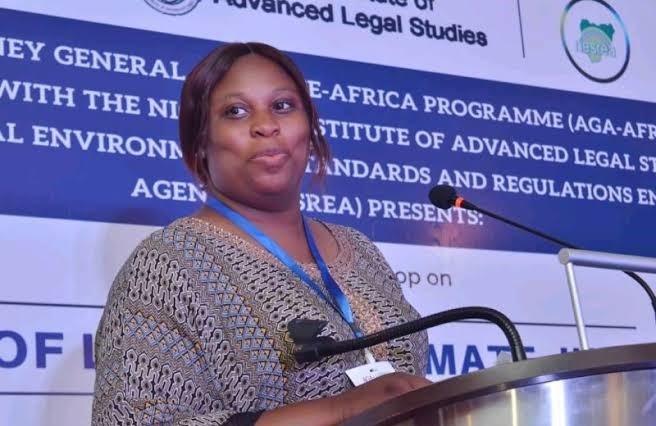As Nigeria prepare its third Nationally Determined Contribution (NDC 3.0) under the Paris Agreement, Dr. Nkiruka Maduekwe, the Director-General/Chief Executive Officer, National Council on Climate Change Secretariat (NCCCS), has charged stakeholders in the climate change sector to prioritise collation of timely and adequate data in driving the process.

Dr. Maduekwe gave the charge in her goodwill message on Wednesday, May 28, 2025, while declaring open the “Stakeholder Consultation, Engagement and Data Collation Workshop for the Preparation of the NDC 3.0 of Nigeria” with Ministries, Departments and Agencies (MDAs), in Lagos.
Speaking through Halima Bawa-Bwari, a Director in the NCCCS, the Director-General noted that “the workshop on the revision of Nigeria’s NDCs and the collation of data and technical analysis are critical pillars of our national climate ambition and policy planning.”
According to her, “the NDC represents Nigeria’s commitment under the Paris Agreement to reduce greenhouse gas emissions and adapt to the impacts of climate change. The revision process is not merely an update, it is a chance to raise our ambition, align our national plans with the latest science, and present the progress we’ve made since our last submission.
“This series of consultation workshops is particularly significant because robust and credible data underpins effective climate action. Data enables parties to access current statuses, enables the setting of ambitious but realistic targets, while enabling monitoring of progress made in the effort to achieving climate action and aligning to the Paris Agreement.”
She added: “Accurate and timely data is a key requirement that will enable government to make evidence-based decisions, track our progress, and ensure transparency and accountability in reporting. To achieve this, there is a dear need for engagement, collaboration, and partnership between governments, private sector actors, civil society, NGOs, people with disabilities, among others. This will facilitate the collation of a robust database that can transform our climate change commitments into tangible, progressive action.
“As we move forward, let us seize this opportunity to align our NDC with the urgent need for climate action in all the sectors of the economy, as the ambition of this government is an economy-wide NDC which has a broadened scope that leaves no one behind. Together, we can pave the way for a future where NDCs are not only policy documents but solutions driving sustainability, resilience, and prosperity for all.”
While appreciating the United Nations Development Programme (UNDP) for their technical and financial support in making the workshop possible, Maduekwe however encouraged all participants to engage openly, share knowledge, raise questions, and work collaboratively to ensure that the outcomes of the workshop feed directly into a stronger and more responsive NDC revision process.
In his submission, Professor Emmanuel Oladipo, a seasoned environmentalist and a university scholar, commended the NCCCS to organising the workshop, saying that it’s the right call in the right direction.
He, however, advised that there should be an implementation plan from the NCCCS to make their plans towards the NDCs more feasible.
According to him “NCCCS should start the thinking on the strategy to do 200 things at a time which might be a bit difficult in my opinion. When I saw that the NDC implementation framework was made, I was happy. You can’t do an implementation framework if we have implemented it. It would have been very clear that some of the things you wanted to do may not be possible.
“And each time I come back to the council, you know, the universities that the federal government is supporting to use solar energy to develop themselves. I kept on asking of the council, are you following all of these? Do you have a way by which you can go CO2 emission savings where everybody is saving universities?
“To me, you can come back in another five years to be right in the same thing. Let us agree that this is very important. Whatever will come out of this NDC framework, which I don’t think is going to be very easy, must be a very, very clear, addictive implementation plan,” he stated.
The ongoing “Consultation, Engagement and Data Collation Workshop for the Preparation of The NDC 3.0″ represents Nigeria’s commitment under the Paris Agreement to reduce greenhouse gas emissions and adapt to the impacts of climate change.
The workshop had in attendance members of NCCCS, representatives of MDAs, academia, and representatives from the UNDP in attendance.
By Ajibola Adedoye
